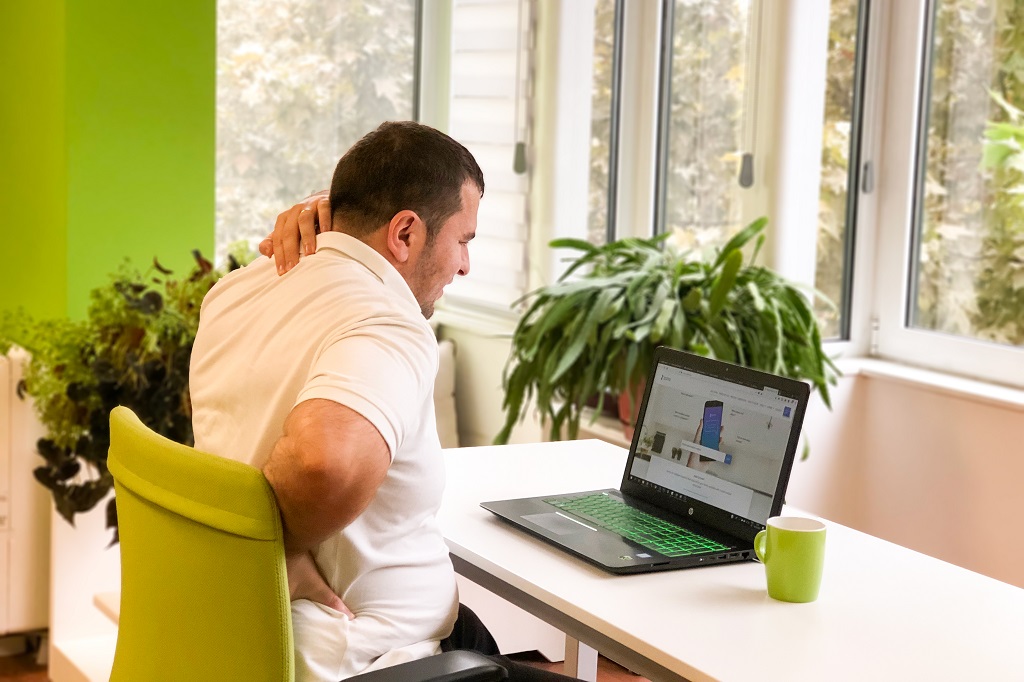Low back pain
Introduction

Back pain is a common problem that affects most people at some point in their life.
It may be triggered by bad posture while sitting or standing, bending awkwardly, or lifting incorrectly. It's not generally caused by a serious condition.
Find out more about the causes of back pain .
In most cases back pain will improve in a few weeks or months, although some people experience long-term pain or pain that keeps coming back.
Types of back pain
Backache is most common in the lower back (lumbago), although it can be felt anywhere along your spine, from your neck down to your hips.
Read information on twisted neck and shoulder pain, which are covered separately.
Sometimes back pain can be caused by an injury or disease, such as:
- a slipped disc when one of the discs in the spine is damaged and presses on the nerves
- sciatica irritation or compression of the sciatic nerve, which causes pain, numbness and tingling that travels down oneleg
- whiplash neck injury caused by a sudden impact
- frozen shoulder inflammation around the shoulder that causes pain and stiffness
- ankylosing spondylitis a long-term condition that causes pain and stiffness where the spine meets the pelvis
The rest of this information will focus on back pain that doesn't have an obvious cause. Doctors call this non-specific back pain.
What to do
Most cases of back pain get better on their own and you may not need to see a doctor.
If you've only had back pain for a few days or weeks, the following advice may help relieve your symptoms and speed up your recovery:
- remain as active as possible and try to continue with your daily activities
- take over-the-counter painkillers such asparacetamol or ibuprofen if you feel you need to
- use hot or cold compression packs you can buy these from your local pharmacy, or a bag of frozen vegetables and a hot water bottle will work just as well
Although it can be difficult to be cheerful or optimistic if you are in pain, it's important to stay positive as this can help you recover faster.
If you want to do this, you will usually need to pay for private treatment, which is likely to cost around 30-50 for each appointment.
Spinal surgery is usually only recommended when all else has failed.
Try to avoid placing too much pressure on your back and ensure it's strong and supple.
Regular exercise, such as walking and swimming, is an excellent way of preventing back pain. Activities such as yoga or pilates can improve your flexibility and strengthen your back muscles.
For advice on how to sit, stand and lift correctly to avoid backache read more about preventing back pain.
Introduction
Back pain is a common problem that affects most people at some point in their life. It may be triggered by bad posture while sitting or standing, bending awkwardly, or lifting incorrectly.
Symptoms
You should seek urgent medical help if you have back pain and a high temperature (fever), unexplained weight loss, a swelling or a deformity in your back, it's constant and doesn't ease after lying down, etc.
Causes
Your back is a complex structure made up of bones, muscles, nerves and joints. This can often make it difficult to pinpoint the exact cause of the pain.
Diagnosis
Most cases of back pain do not require medical attention and can be treated with over-the-counter painkillers and self-care. However, you should visit your GP if you are worried about your condition or struggling to cope with the pain.
Treatment
Treatments for back pain vary depending on how long you have had the pain, how severe it is, and your individual needs and preferences. Initially, back pain is usually treated with over-the-counter painkillers and home treatments.
Lower back pain exercises
There are some simple back exercises and stretches you can do at home to help ease lower back pain and improve your strength and flexibility.
Prevention
Keeping your back strong and supple is the best way to avoid getting back pain. Regular exercise, maintaining good posture and lifting correctly will all help. How you sit, stand and lie down can have an important effect on your back.
"I've picked up my life again."
Back pain was agony for Anne Parker from Berkshire, but thanks to the right diagnosis shes now walking tall. My bad back started 12 years ago with pains in my right buttock. When I saw my GP, he said the problem was actually my back,and he gave me painkillers.
"I can continue going about my daily life."
Kiran Mohan tells his story about his struggle with back pain. "My back problems started in 1999 when I developed a severe pain in the heel of one of my feet, which gradually progressed to the other foot." he says.







 Subscribe
Subscribe Ask the doctor
Ask the doctor Rate this article
Rate this article Find products
Find products